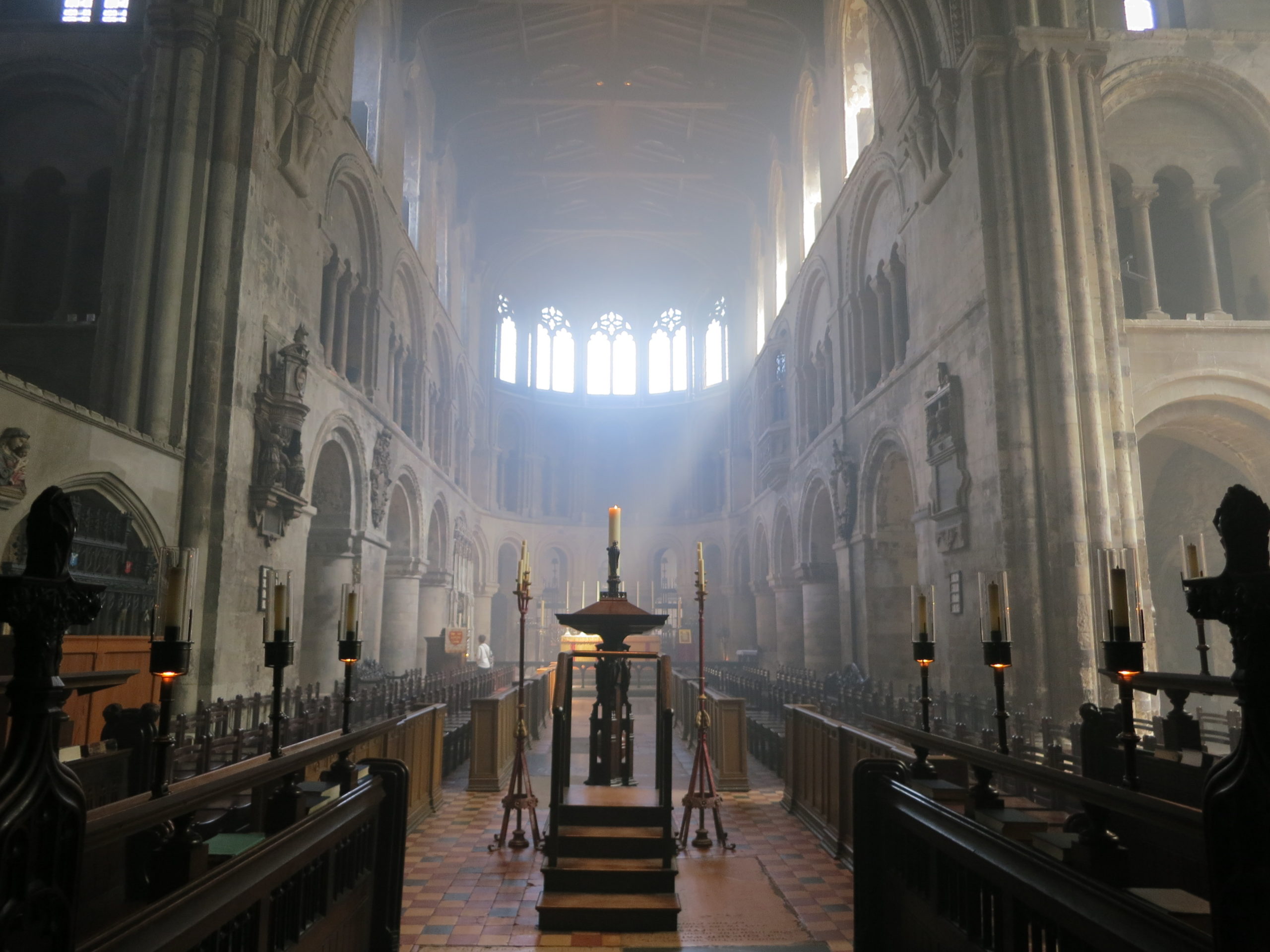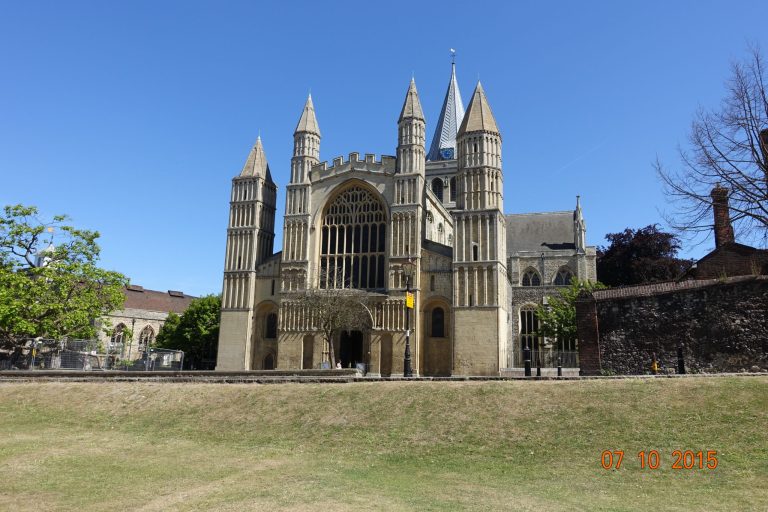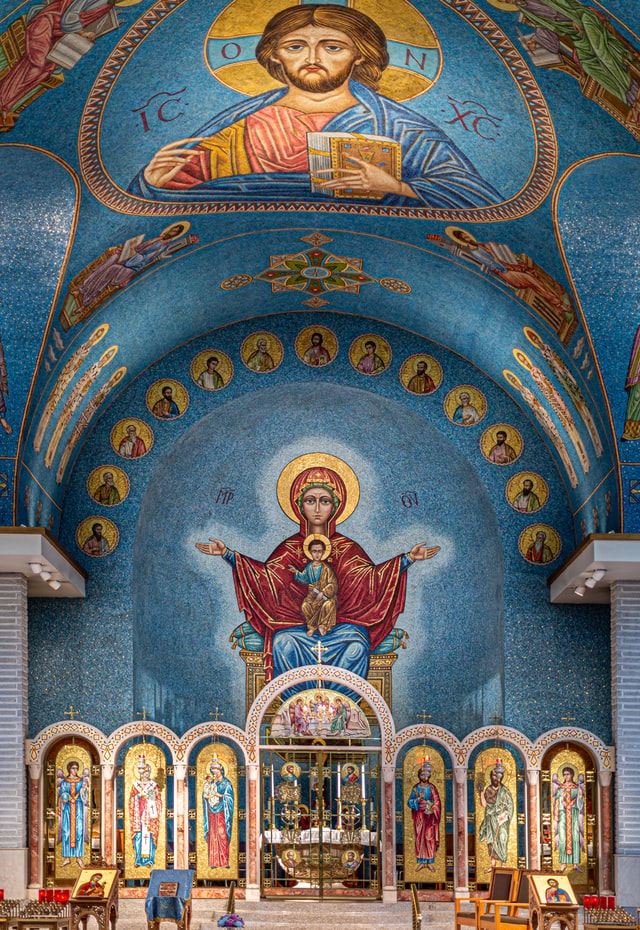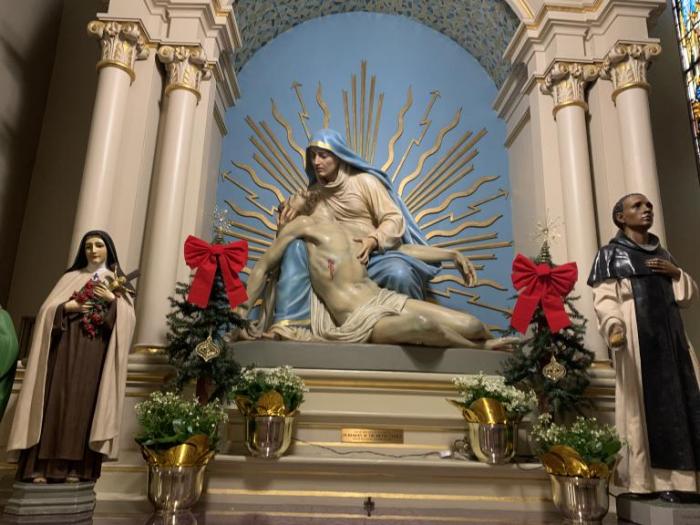Of Pastors and Power: Mark Driscoll and the Avignon Papacy
I made the mistake recently of reading Mark Driscoll’s 2008 Crossway book On Church Leadership. For those of you who have forgotten, or just blocked it, Mark Driscoll was the former pastor of the Mars Hill megachurch. He resigned deep in scandal in 2014, but has recovered somewhat and started a new church in Scottsdale, Arizona.
My curiosity about his teachings was soon replaced by a fascinated horror. Driscoll’s obsession with pastoral power–the “first among equals,” as he wrote–reminds me of medieval arguments for papal primacy (which seems really ironic to me, given Driscoll’s rejection of his Catholic background). Driscoll, for example, emphasizes that “senior leadership” is needed to preserve unity, that the senior leader has the power to make decisions without compromising, and that pastoral authority stems from the authority of Peter, the “leader of the elders.” This isn’t exactly papal primacy; it is just scarily similar.
But what really struck me (or at least what I want to talk about this time) is his argument for senior pastors deserving power, prestige, and high salaries. Listen to what he says.
“As a general rule, the best person to hold the position of first among equals is the primary preaching pastor. Indeed, 1 Timothy 5:17 says, ‘Let the elders who rule well be considered worthy of double honor, especially those who labor in preaching and teaching.’ While all elders deserve respect and honor, this is especially true of the primary preaching pastor and, as the context of this verse shows, part of that honor includes the highest salary of all paid elders. The pulpit is the most visible place of exercised authority in the church.”
For the sake of my time (and sanity) we will skip over Driscoll’s astounding assumption that the preachers and teachers of the first century looked like the leadership of a modern evangelical church, not to mention his profound twisting of Paul’s call for Christians to take care of the needs of pastors into a justification for paying preaching pastors higher than anyone else. (If you want to know what the first-century world and its churches really looked like, I recommend reading some of these: Carolyn Osiek’s A Woman’s Place: House Churches in Earliest Christianity, Bruce W. Winter Roman Wives, Roman Widows: The Appearance of New Women and the Pauline Commandments, Bruce W. Longenecker and Todd Still Thinking through Paul: A Survey of His Life, Letters, and Theology, and any of Ben Witherington’s Socio-Rhetorical commentaries).
Let’s just focus on Driscoll’s argument that preaching pastors deserve greater respect and honor, exercise greater authority, and deserve a higher salary than other church leaders.
This claim piques my medieval ears because another group of church leaders had similar thoughts about papal (pastoral?) leadership in fourteenth-century Europe. Through a series of misadventure (including the murder of a pope by the French king!), the medieval papacy moved from Rome, Italy, to Avignon, France, in 1305 and stayed there until 1378. Unfortunately these popes gained a reputation more for arrogance and worldliness than for sanctity and humbleness. Indeed, the Italian poet and humanist Francesca Petrarch wrote that the Avignon papacy physically sickened him.
Listen to his 1358 accusations:
“Now I am living in France, in the Babylon of the West. The sun in its travels sees nothing more hideous than this place on the shores of the wild Rhone, which suggests the hellish streams of Cocytus and Acheron. Here reign the successors of the poor fishermen of Galilee; they have strangely forgotten their origin. I am astounded, as I recall their predecessors, to see these men loaded with gold and clad in purple, boasting of the spoils of princes and nations; to see luxurious palaces and heights crowned with fortifications, instead of a boat turned downward for shelter.
We no longer find the simple nets which were once used to gain a frugal sustenance from the lake of Galilee, and with which, having labored all night an caught nothing, they took, at daybreak, a multitude of fishes, in the name of Jesus. One is stupefied nowadays to hear the lying tongues, and to see worthless parchments turned by a leaden seal into nets which are used, in Christ’s name, but by the arts of Belial, to catch hordes of unwary Christians. These fish, too, are dressed and laid on the burning coals of anxiety before they fill the insatiable maw of their captors.
Instead of holy solitude we find a criminal host and crowds of the most infamous satellites; instead of soberness, licentious banquets; instead of pious pilgrimages, preternatural and foul sloth; instead of the bare feet of the apostles, the snowy coursers of brigands fly past us, the horses decked in gold and fed on gold, soon to be shod with gold, if the Lord does not check this slavish luxury. In short, we seem to be among the kings of the Persians or Parthians, before whom we must fall down and worship, and who cannot be approached except presents be offered. O ye unkempt and emaciated old men, is it for this you labored? Is it for this that you have sown the field of the Lord and watered it with your holy blood?”
Petrarch anguished over how the Avignon Papacy privileged power, prestige, and wealth above the souls of people. Instead of helping others along the path for salvation, he wrote, the Avignon priests were catching “hordes of unwary Christians” and eating them alive. Instead of acting like fishers of men, the Avignon “successors of the poor fishers of Galilee” had “strangely forgotten their origin.”
Mark Driscoll’s attitudes toward pastoral power suggest that he too has “strangely forgotten” his origin. Pastors, according to his teachings, should be authoritarian in their rule: not tolerating dissent, not giving into compromise, requiring obedience and respect from their congregants (which includes high salaries), and “guarding the gate” of church leadership to “ensure unity and success.”
These attitudes didn’t work out so well for the medieval papacy….I can only pray that modern evangelicals will choose to learn from history rather than repeating it.




